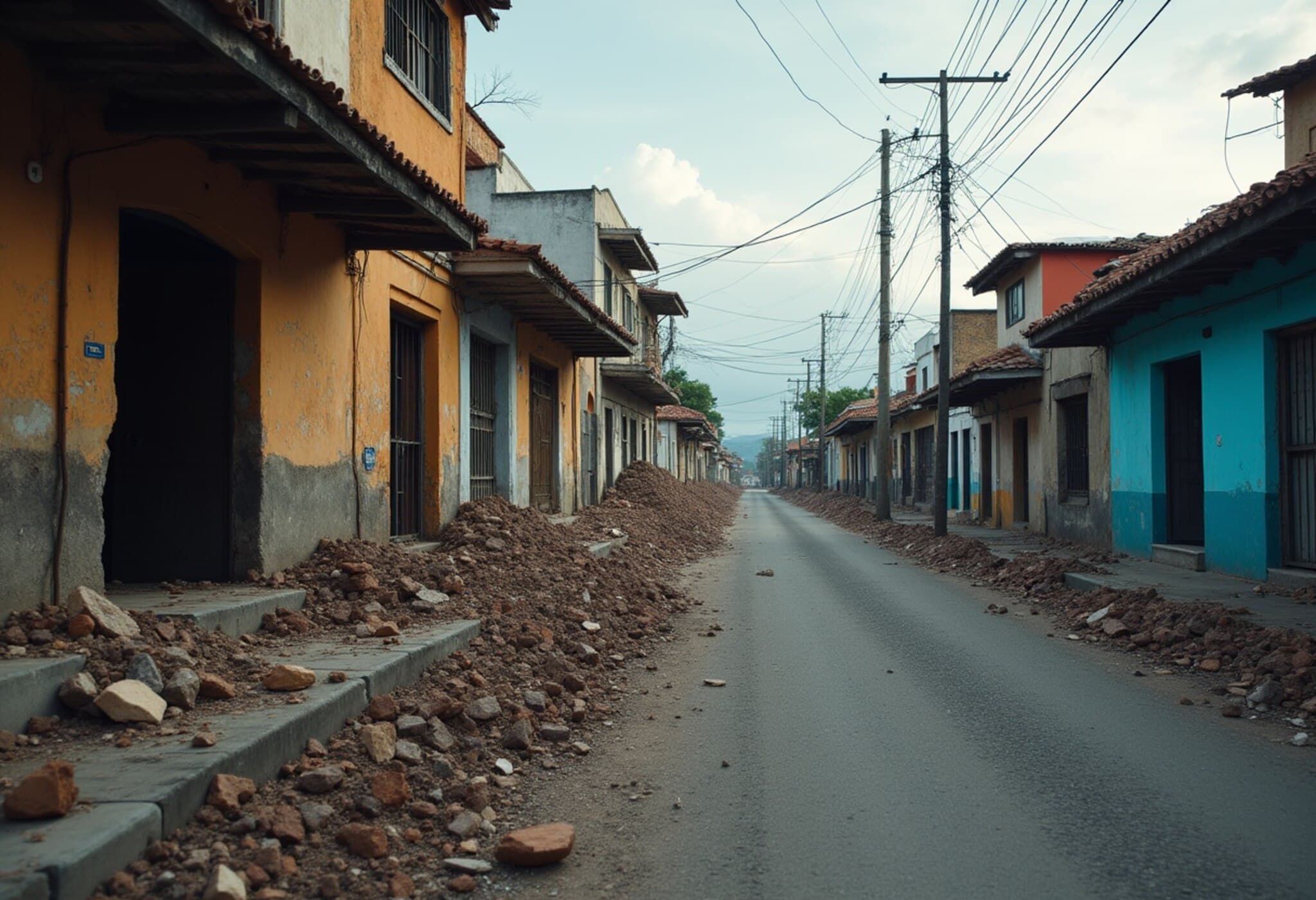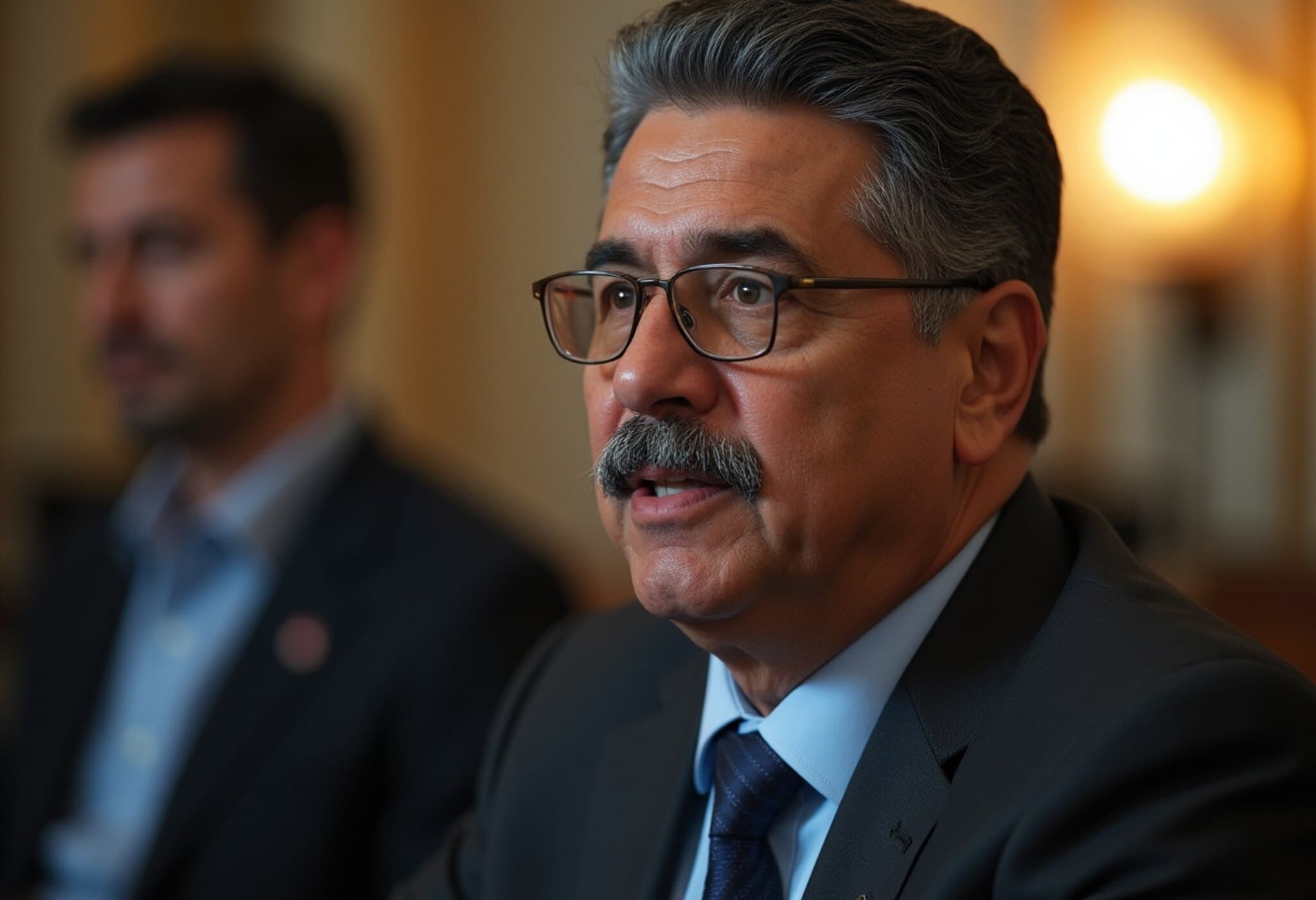Three Powerful Earthquakes Shake Venezuela and Colombia Within Hours
On the evening of September 24, 2025, Venezuela experienced a series of three significant earthquakes within roughly five hours, rattling not only the nation but also neighboring Colombia. The United States Geological Survey (USGS) reported magnitudes ranging from 4.9 to 6.3, causing widespread tremors felt across borders in key population centers. Remarkably, despite the intensity and the areas affected, no casualties have been reported so far.
The Timeline and Impact of the Quakes
- First earthquake: At 6:21 p.m., a magnitude 6.2 quake struck near Mene Grande in the Venezuelan state of Zulia. This area is significant as it lies close to Maracaibo, the heart of Venezuela's pivotal oil industry.
- Second earthquake: At 10:42 p.m., a 4.9-magnitude tremor once again hit Zulia, causing fresh concerns among residents and authorities.
- Third earthquake: Finally, at 11:51 p.m., a 6.3-magnitude earthquake was recorded in the neighboring state of Trujillo.
According to the USGS, all three quakes occurred at depths less than nine miles beneath the surface, a shallow depth known to increase the likelihood of damage. Indeed, social media videos and images document damage to buildings and roadways, and many residents in Zulia were seen evacuating their homes amid the aftershocks.
Official Responses and Safety Measures
Venezuelan Vice President Delcy Rodríguez, speaking on national television early Thursday, reassured the public that there had been no reports of fatalities. She emphasized the government's heightened alertness following nearly two dozen earthquakes and aftershocks within the past day.
Meanwhile, Luis Gerardo Caldera, governor of Zulia, highlighted ongoing damage assessments, including concerns over cultural heritage sites such as the historic Church of Santa Bárbara in Maracaibo.
Cross-Border Effects in Colombia
The seismic activity didn’t stop at Venezuela’s borders. Leaders in Colombia's northwestern and north-central cities acknowledged the tremors. Medellín’s Mayor, Fico Gutiérrez, reported strong shaking about 400 miles from the epicenter but confirmed no immediate damage or casualties. Similarly, Jaime Andrés Beltrán, mayor of Bucaramanga, declared a high alert status to mobilize emergency services rapidly if needed.
Contextualizing the Seismic Activity
The region is part of a complex tectonic zone influenced by the interaction of the Caribbean and South American plates. Venezuela’s northern states have historically been vulnerable to earthquakes, with potential to affect infrastructure critical to the nation's economy and everyday life.
Expert insight: Dr. Maria Soto, a seismologist specializing in South American tectonics, explained, “Shallow earthquakes of this magnitude can cause significant surface damage, especially in urban areas with older buildings or inadequate construction standards. While the lack of casualties is encouraging, local authorities must prioritize structural assessments and emergency readiness to mitigate further risks.”
The recent cluster of seismic events may also raise questions about aftershock risks and the resilience of essential infrastructures, such as oil facilities in Zulia, a key contributor to Venezuela’s fragile economy.
Humanizing the Crisis: Voices from the Ground
Eyewitness videos captured on security cameras showing tremors in Zulia reveal the very human side of the crisis: residents experiencing fear and uncertainty, families evacuating homes, and a community bracing for aftershocks. These images underscore how natural disasters ripple beyond physical damage—they impact mental health, livelihoods, and social cohesion.
Looking Ahead: What’s Next for Venezuela and Colombia?
- Emergency preparedness: Authorities in both countries are urged to enhance seismic monitoring, public alerts, and disaster response capabilities.
- Infrastructure resilience: Strengthening building codes and conducting safety audits in critical urban centers like Maracaibo and Medellín will be crucial.
- Regional cooperation: Earthquakes do not respect national borders. Cross-border collaboration on early warning systems and resource sharing could save lives.
As recovery efforts continue, the events remind us of the persistent vulnerability of communities in seismic zones and highlight the imperative for integrated disaster risk management strategies in Latin America.
Editor’s Note
While the recent earthquakes in Venezuela and neighboring Colombia have, fortunately, resulted in no immediate casualties, the potential economic and social impacts warrant close attention. How prepared are local governments and communities for such natural hazards? As climate change heightens the unpredictability of extreme events worldwide, fostering resilience and cooperation in vulnerable regions remains a pressing global priority. We will continue to monitor updates and provide expert analysis on seismic risks across Latin America.











